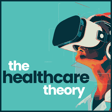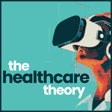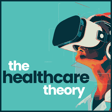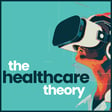
Democratizing Access to Clinical Trials | Jason and Ariana of Sagely Health
In this episode of The Healthcare Theory, we’re joined by Jason Sager, founder of Sagely Health, and Ariana Paness to discuss their groundbreaking work in transforming cancer care.
Sagely Health addresses a critical gap in the healthcare system: the lack of visibility into drugs and clinical trials that target new genetic mutations. Even when a perfect treatment exists, many patients and providers remain unaware of these options. We explore how their platform leverages AI-driven clinical decision support to bridge this knowledge gap, connect patients with life-saving therapies, and empower oncologists to deliver personalized care. Don’t miss this deep dive into the future of precision oncology and the challenges of navigating innovation in cancer treatment.



